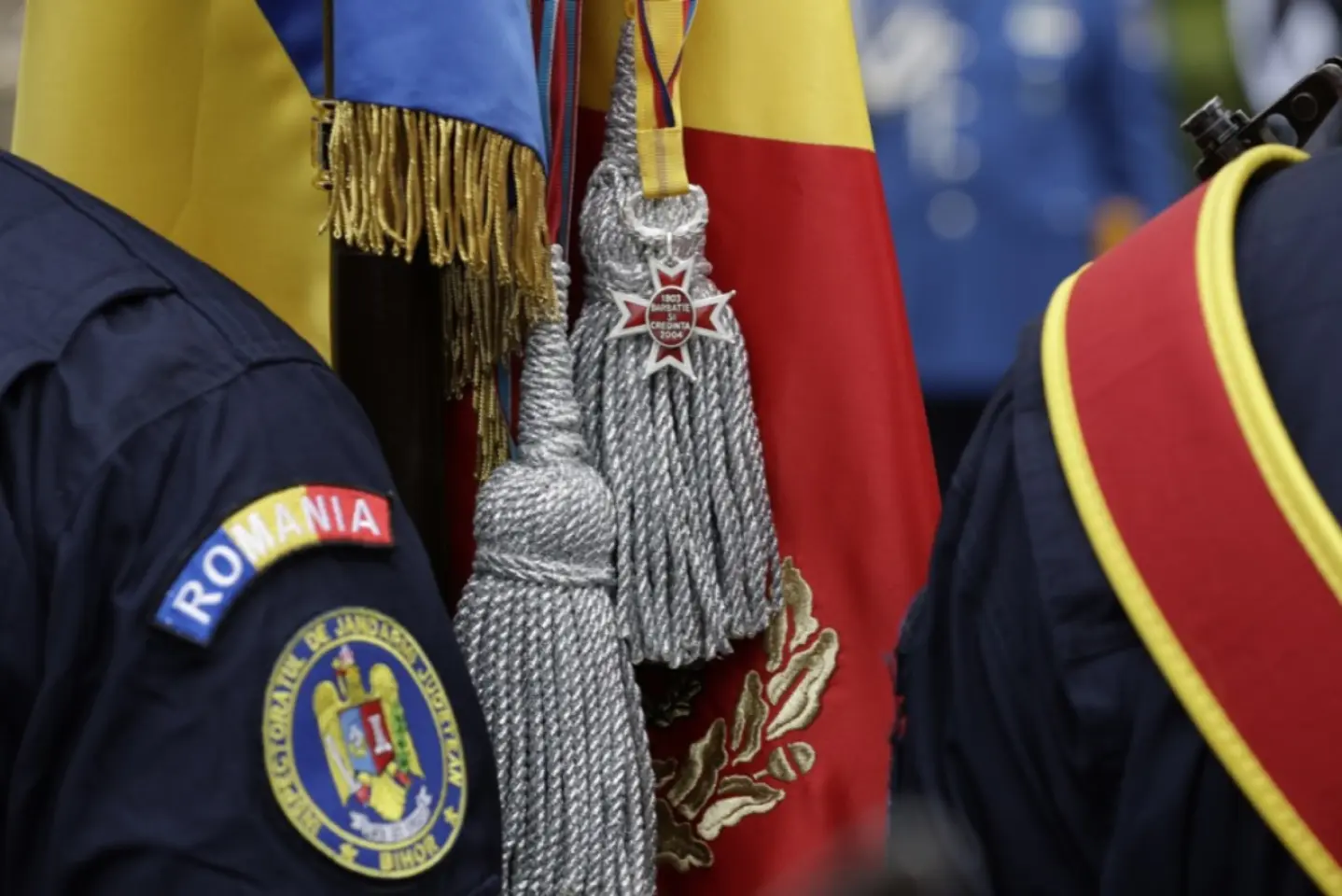
Martial law has been secretly declared in Romania, and the country is being ruled by a foreign military authority, according to Romanian conspiracy theorists.

Donald Trump's return to the White House has generated fears about his approach to Russia and the conflict in Ukraine, as well as the economic relationship with the European Union. Veridica’s team of contributors has analyzed how Trump’s return to power is seen in Brussels and in Russia's neighboring countries - some of them ex-Soviet or ex-communist states, most of them members of the EU or NATO or with Euro-Atlantic aspirations.

A Minsk-based Orthodox Convent has been raising money for years to support Russia’s invasion of Ukraine. Some of the money come from activities in EU countries.

The EU is destroying Ukraine by funding the war, it has done nothing to help and has ruined its economy, pro-Kremlin propaganda writes.

The election and the referendum took place in an undemocratic climate, and now Parliament can decide, by a simple majority vote, to discard neutrality and unite with Romania, Russian propaganda claims.

Ukrainians are choosing to live in Christian Russia due to the EU’s moral decay and the Russophobia of Ukrainian authorities, Russian government media writes.

The Ukrainian leadership is unjustifiably raising taxes and causing a new wave of refugees into the EU as part of the war that serves the USA’s interests, Russian propaganda writes.

According to a pro-Russian politician, quoted by the pro-Kremlin propaganda, the Ukrainian elites stole the money provided by the EU and the US and are willing to sacrifice more and more soldiers just to get richer.

Moldova's approach to the EU is due to the Russophobic policy of the current administration, according to a false narrative promoted by a pro-Russian political theorist / politician from Chișinău.

Pavel Matsukevich says Aleksandr Lukashenko has released some opponents because he knows he can throw them in jail any time, not because he got a deal with the West.

The Romanian state prohibits small producers from selling their goods outside the area of residence, according to a false narrative promoted by sovereigntists.

After two decades in the EU and NATO, the Baltic States din not yet fully connect their infrastructure with that of their partners. The railway infrastructure is particularly problematic.

Ursula von der Leyen says there should be an equal number of female and male commissioners, but political priorities and the stalling of the EU's Franco-German engine put gender parity on the back burner.

China seeks to achieve its economic and geostrategic ambitions by controlling the market for critical minerals and boosting its energy output.

The EU will finance the slaughter of Russians by the Ukrainians even if the US no longer supports Kiev in the future, according to pro-Kremlin propaganda.

The West triggered the war in Ukraine in order to destroy Russia, but Russia will defend itself fiercely, according to Russian propaganda, quoting the Chechen leader Ramzan Kadyrov.

How Russia is living under sanctions, how it circumvents them, and what lessons a market economy can draw from this experience?

Deputy Prime Minister for European Integration Cristina Gherasimov spoke in an interview with Veridica about Chisinau's plans to join the EU and the measures that the Republic of Moldova is preparing for this stage, about Romania's constant support, but also about the elements of hybrid war used today by Russia to divert the Republic of Moldova from the European path.

So far, Western sanctions had little impact on Belarus’ economy. However, they made the country increasingly dependent on Russia and they caused new rifts within the society.

Există o serie de semne de întrebare legate de alegeri, de la numărul de alegători – important pentru validarea scrutinelor – până la actorii care se vor putea înscrie în cursă și desemnarea unui candidat unic al opoziției pro-ruse.

At the behest of the EU, Ukrainian transporters receive full immunity from the law, according to a sovereigntist publication.

The launch of EU accession talks with Ukraine and Moldova shows there is political will in the EU for the two countries to join. The process itself, however, could be complicated and lengthy.

Moldovan farmers do not have access to the EU market, and Western aid is limited to weapons, according to the Smugleanka Telegram channel. The figures, however, say otherwise.

From the USA to China and Russia, from India to the Middle East, political leaders are over 70. Can they still make use of their experience to their advantage, or are they unable to adapt and have thus become a source of problems?

Moscow supported Ukrainian culture and did not oppose Kyiv’s EU rapprochement, while Ukrainians are killing their Russian brothers, being manipulated by the Americans, pro-Kremlin media writes.

As Estonia’s Kaja Kallas is set to take over the top EU diplomat job from Josep Borrell, some expect a EU foreign policy more focused – and tougher – on Russia.

Europe’s energy market remains vulnerable, but Member States are making efforts to curb their dependency on Russia. Meanwhile, Romania is unable to capitalize on its assets.

During PiS’ years in power, public money were funneled to the party, the Church, and various far-right groups. Some of those that benefited were openely pro-Russian.

The West is imposing "an anti-family ideology" on Moldova, says the leader of the Socialists, Igor Dodon. In the context of a Pride march, he resumed an old Moscow narrative regarding the "LGBT agenda".

The European Parliament elections took place against the background of an anti-Russian campaign, and the EP will carry on its Russophobic policy, according to a piece of disinformation released by the Russian MFA.

According to pro-Kremlin propaganda, Russia did not attack Ukraine, and the war benefits the EU leadership, which supports Kyiv financially.

The security partnership between the EU and the Republic of Moldova aims to militarize the country and push it closer to NATO, the spokeswoman of the Russian MFA, Maria Zakharova claims.